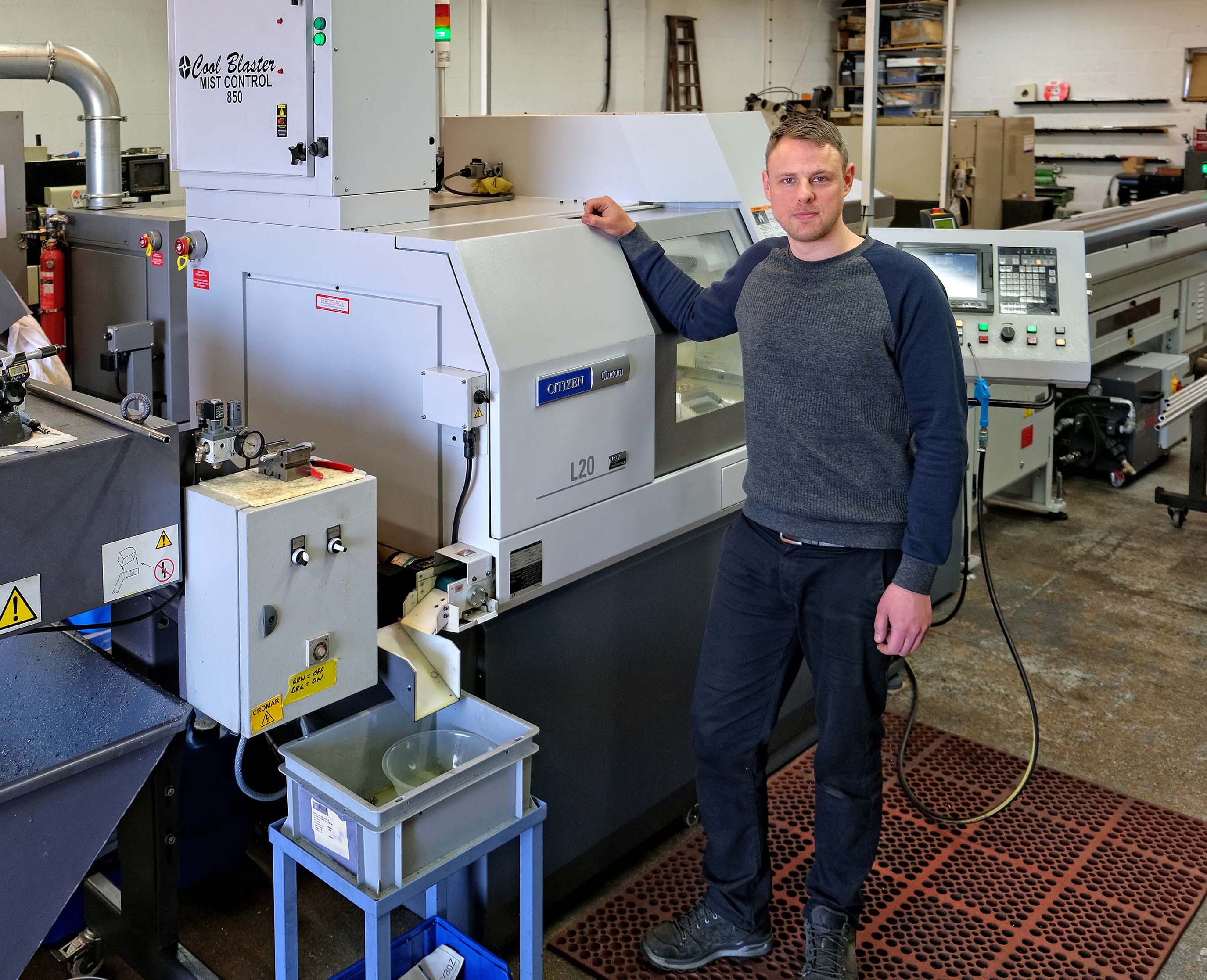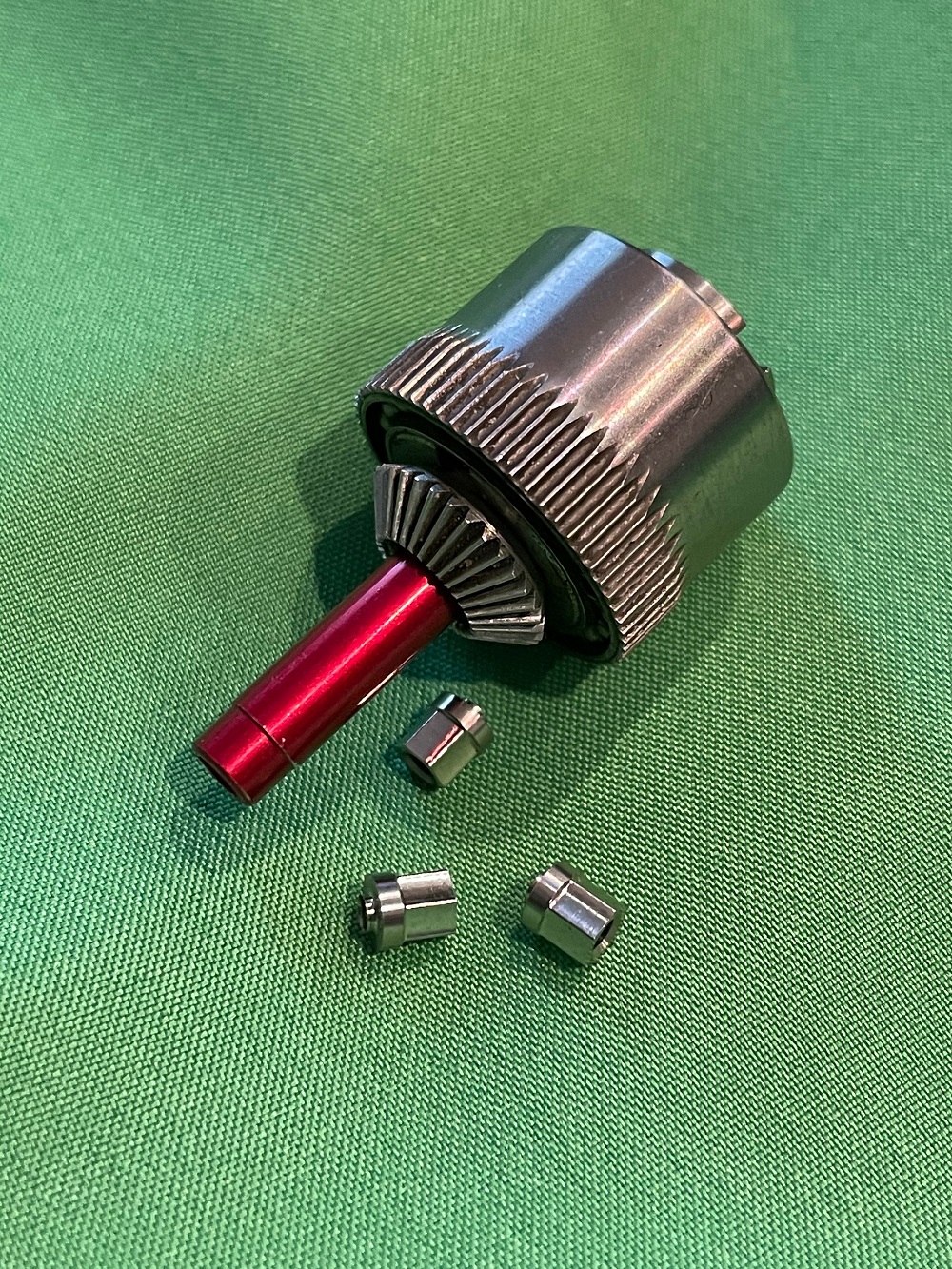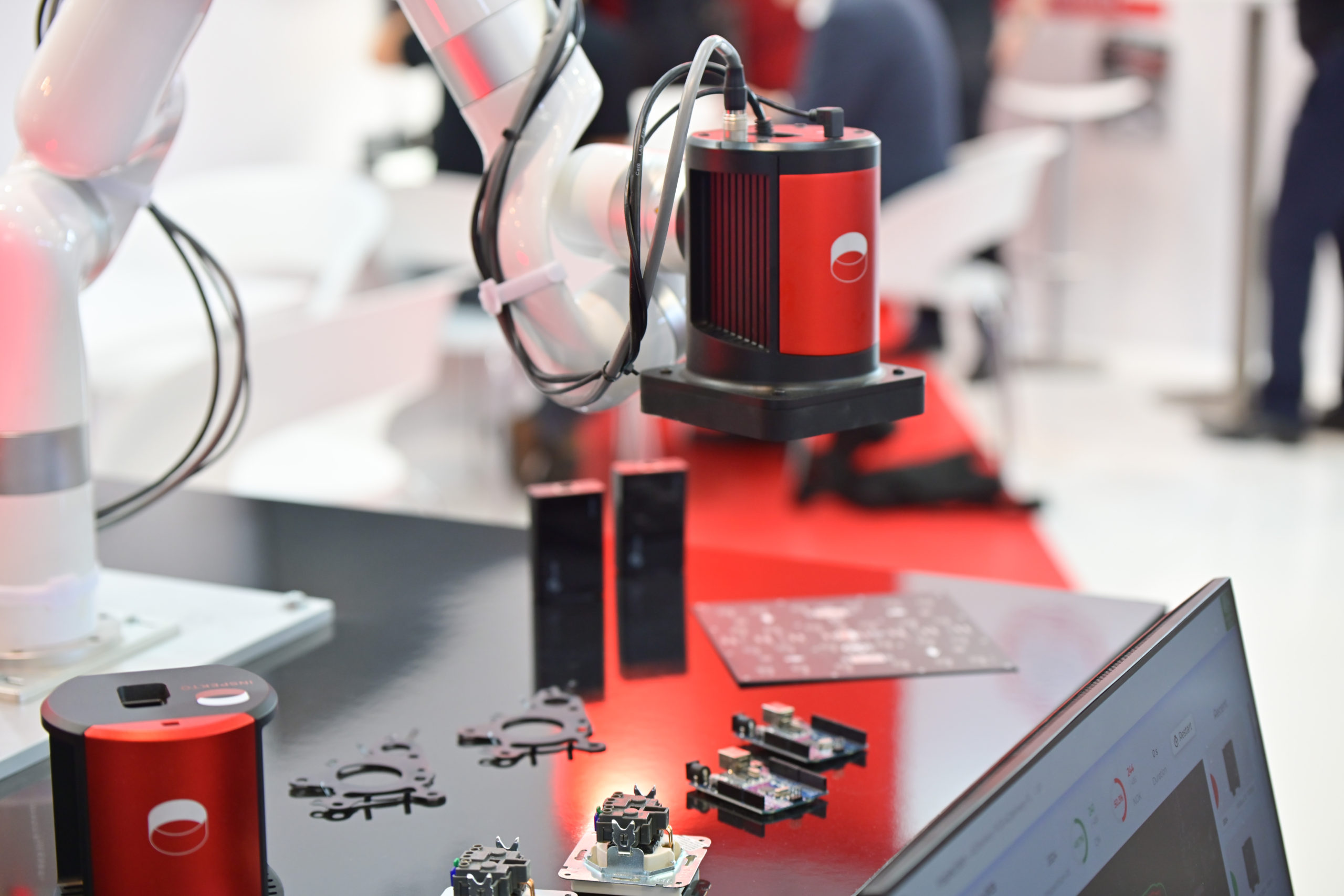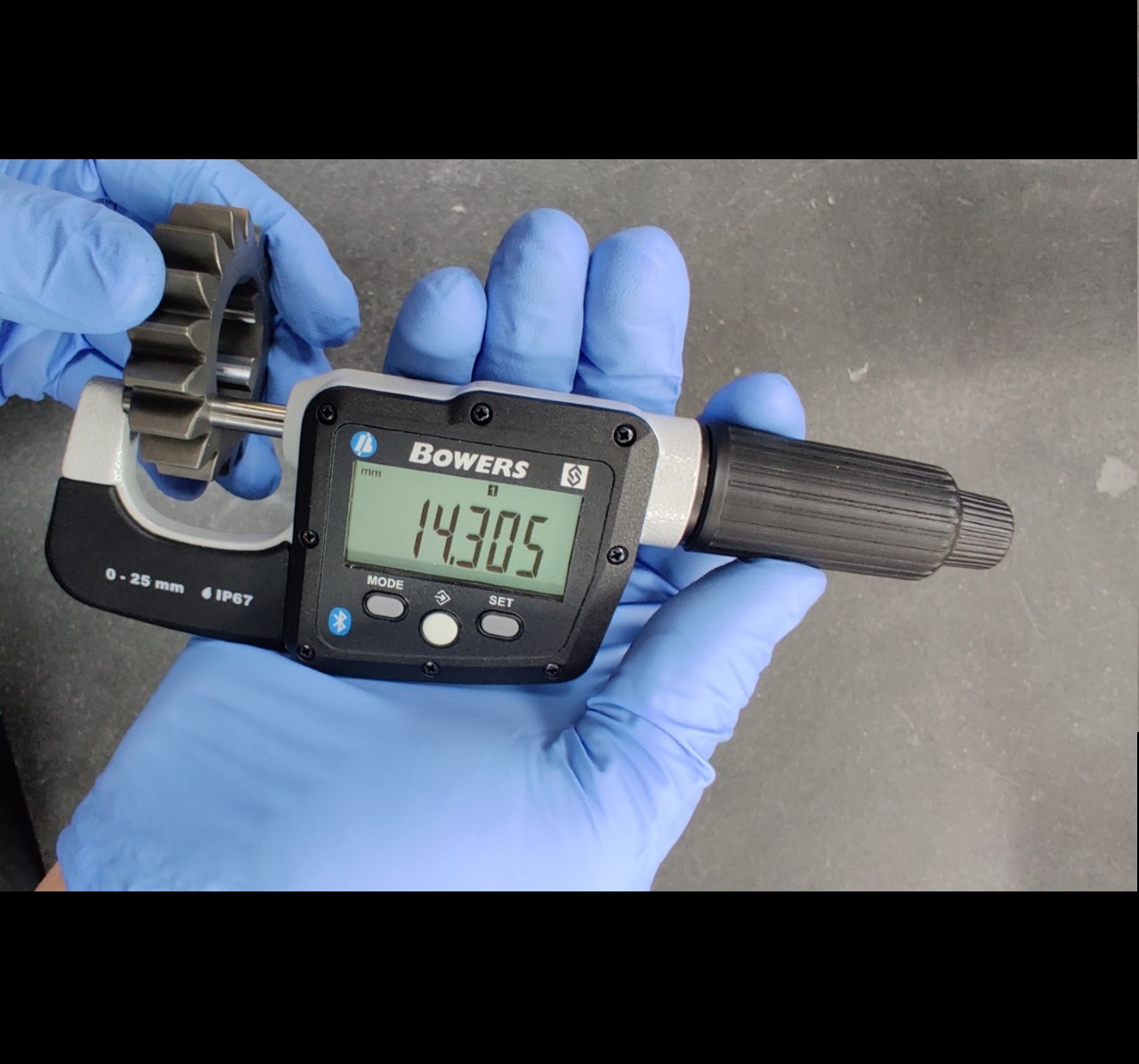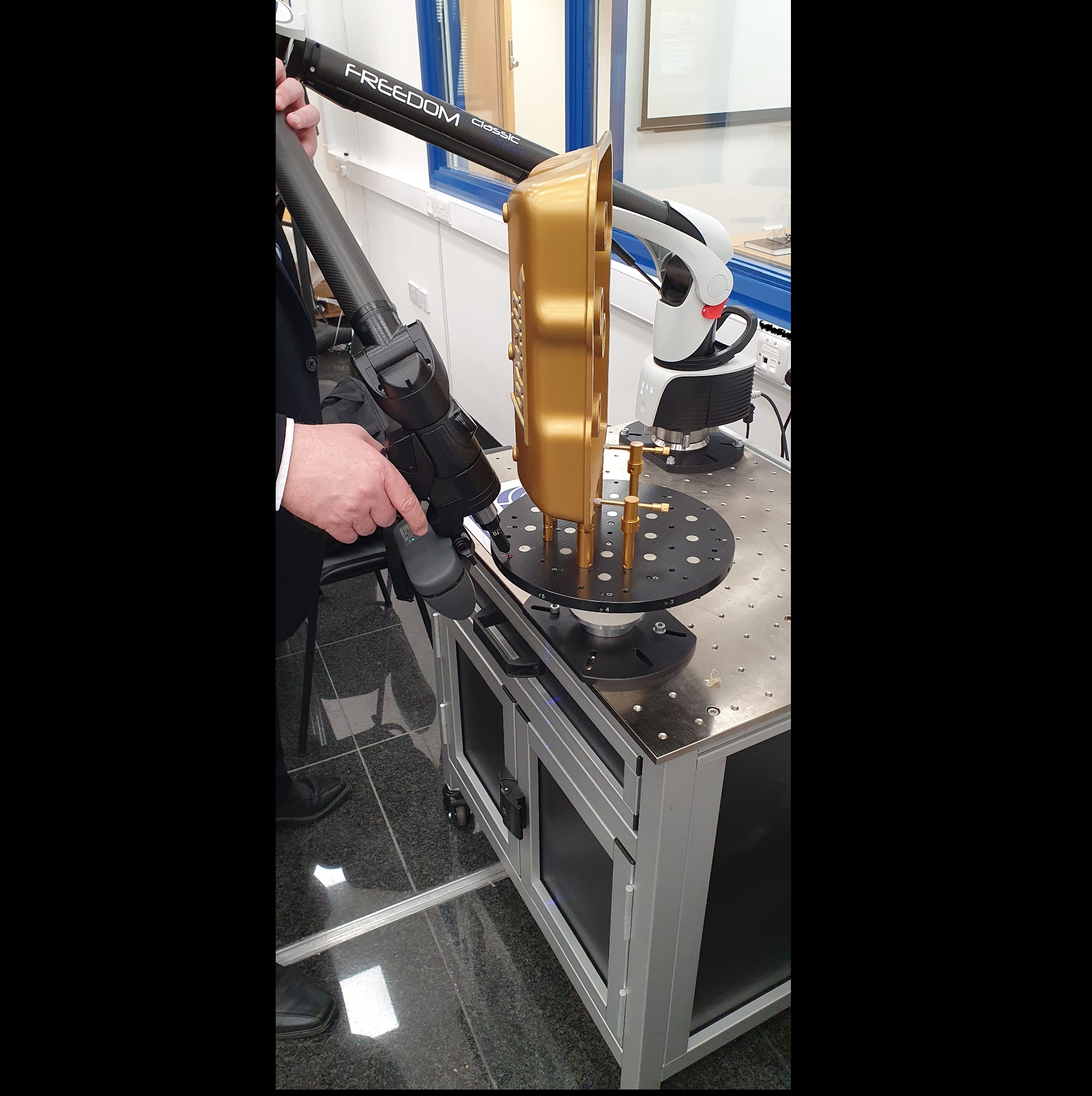Tom Pearce started his own business, CIRC Manufacturing in Westbury, Wiltshire in 2016. Current CNC capacity at the company includes a vertical machining centre and two fixed-head lathes, all pre-owned, and three Citizen Cincom sliding-head lathes also purchased second-hand due to financial constraints during the start-up phase. His stated aim is to gravitate towards using more of the latter machines to produce complex, small to medium diameter, high added value components.
In 2019 Pearce bought a 1995-built Cincom L20-VII slider with a 3 m bar magazine sight-unseen for £4000 from a website and used his engineering skills to refurbish it himself. He did not feel sufficiently confident to commission it, so asked Citizen Machinery UK to align the bar feeder, bolt down the machine and check the axis movements. The company was very receptive and promptly sent in an engineer to complete the work.
A year later, Pearce again approached Citizen Machinery UK directly for a machine with C-axis spindles and higher speed driven tooling. The supplier offered a K16E-VII built in 2011, a 16 mm capacity slider that ticked the right boxes and is one of the fastest lathes that Citizen has ever manufactured.
A copper contact pin, a development part that was previously produced on the L20-VII, saw the cycle time fall threefold from 60 to 20 seconds using the K16E-VII. The contract has since expanded and the subcontractor is now producing a family of pins in long runs for a customer in the electrical industry.
In January 2022 Pearce bought a two-year-old Citizen Cincom L20-VIIILFV, again on the open market, and achieved another step change in productivity. The first job put on the machine was the production of 20,000 stainless steel gland nuts of 22.22 mm diameter for an electrical equipment manufacturer.
For further information www.citizenmachinery.co.uk







